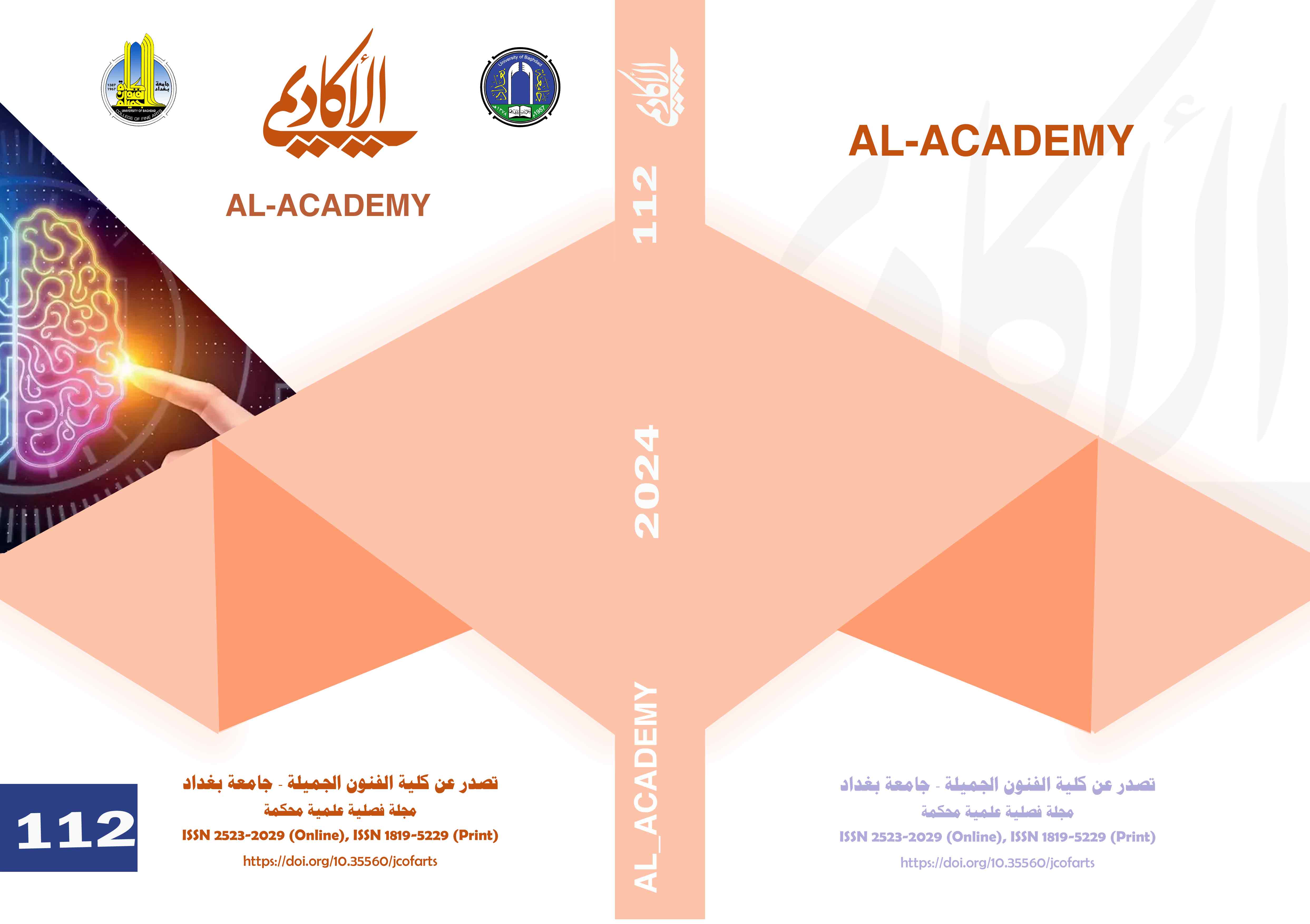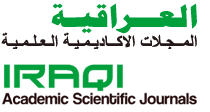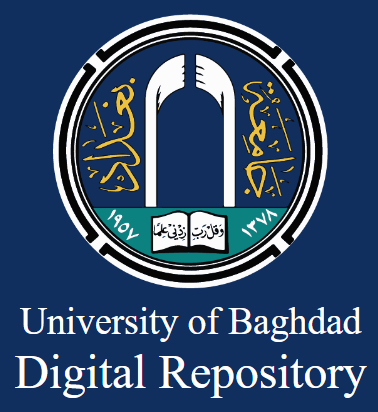Building a model to evaluate the performance of the arts branch teacher in the preparatory stage
DOI:
https://doi.org/10.35560/jcofarts1365Abstract
Evaluation is an important basis in the learning and teaching process because of its importance in determining the value of the work and the amount of educational goals achieved. Evaluation depends on measurement and is closely linked to it.
Evaluation includes issuing judgment in multiple educational fields. The evaluation process requires addressing the elements of weakness to improve the level, raise its level and quality, and strengthen the elements of strength, acknowledge them, and reward them. And here lies the problem of research, as evaluating the teacher’s performance is one of the necessities of the educational process. It aims to achieve several goals, including achieving goals, providing important outputs for the purposes of research and development, and diagnostic, therapeutic, and preventive purposes that give the teacher feedback on his educational performance and the effectiveness of his teaching.
Educators define it as an organized process for collecting and analyzing information for the purpose of determining the degree of achieving goals and making decisions regarding them.
The importance of the current research lies in establishing scientific foundations and evaluative criteria to be a basis on which It is used to evaluate the performance of the arts branch teacher, to benefit from it in making educational decisions.
The aim of the current research is ( to build a model to evaluate the performance of the arts branch teacher in middle school )
In designing her research tool, the researcher relied on several areas, the most important of which are the general objectives and the theoretical framework of the research, which included the basics of the evaluation process, the types of evaluation, its approaches and levels, the stages of evaluating behavior and educational performance, and some evaluation models. In addition to the role and functions of the teacher, teaching skills, educational competencies, and the most important aspects that must be taken into account in consideration when evaluating the teacher’s work.
A model was built to evaluate the teacher’s performance to facilitate educational decisions and obtain comprehensive useful information for judging alternatives to decisions, in order to achieve the goal of the research.
Also the most important conclusions were :
1- The teacher is evaluated in all his aspects in this model, as the evaluation is considered comprehensive.
2- Evaluation contributes to analyzing the teacher’s work.
References
Abdul-Jabbar, T. (1983). Research and Models of Educational Evaluation, (Lectures on Educational Evaluation). Arab Education Library for the Gulf States.
Ahmed, M. A. (1981). Psychological and Educational Measurement (12 ed., Vol. 1). Cairo: Egyptian Nahda Library.
Al-Hila, M. M. (1999). Educational Design, Theory and Practice (1 ed.). Amman: Dar Al-Masirah for Publishing and Distribution.
Al-Husri, A. M., & Al-Enezi, Y. (2000). General Teaching Methods (1 ed.). Kuwait: Al-Falah Library for Publishing and Distribution.
Al-Imam, M. M., & others. (1990). Evaluation and Measurement. Baghdad: Dar Al-Hekma for Printing and Publishing, Ibn Rushd College, fourth year.
Al-Shibli, I. M. (n.d.). Curriculum Evaluation Using Models. Al-Ma’arif Press.
Al-Titi, M. H. (2001). Developing Creative Thinking Abilities (1 ed.). Amman: Dar Al-Masirah for Publishing, Distribution and Printing.
Barakat, M. K. (1987). Educational Psychology, Psychometrics and Educational Evaluation (3 ed., Vol. 2). Kuwait: Dar Al-Qalam for Printing, Publishing and Distribution.
Behnam, F. S. (1993). systematic evaluation of the preparation of male and female teachers in light of professional competencies, (comparative study), doctoral thesis in education and psychology. Baghdad: Ibn Rushd.
Bloom, B., & others. (1973). Handbook on Fromative and Summative Evluation Student Learning.
Good, C. (1973). Dictionary of Education (3 ed.). New York.
Hadi, N. A. (2000). Contemporary Educational Models (1 ed.). amman: Wael Publishing House.
Ibn Manzoor, A. a.-F.-D. (1955). Lisan al-Arab (Vol. Part 3). (T. E. Translation, Trans.) Cairo: The Egyptian General Institution for Authorship.
Kemp, J. (1987). Designing Educational Programs. (A. K. Kazem, Trans.) Cairo: Dar Al-Nahda Al-Arabiya.
Madkour, A. A. (1997). Theories of Educational Curricula (1 ed.). Cairo: Dar Al-Fikr Al-Arabi.
Magda Al-Saeed, O., & others. (2001). Basics of Teaching Design (1 ed.). Amman: Dar Safaa for Publishing and Distribution.
Melhem, S. M. (2001). The Psychology of Learning and Teaching, Applied Theoretical Foundations (1 ed.). Amman: Dar Al-Masirah for Publishing and Distribution.
Muhammad, A. J. (1994). Curriculum Evaluation, Rabat. Baghdad: Ministry of Education.
Odeh, A. S. (1985). Measurement and Evaluation in the Teaching Process. Yarmouk University.
Peter, w. (Feb-1968). Evaluation Management Training Personal.
Richard, A. (1986). Swanson performance AT work, ASyste matic Program for Analyzing work Behavior Awiley-interscieuce publication,. John Wiley & som, New York.
Screven, M. (1967). The methodology of evaluation in R. (Vol. 1). Chicago, Rand McNally,: yler, M. Cagen and M. Scriven (Eds). Perspection of curriculum evaluation AERA.
Stephanie, J., & Mary, D. (1979). Designing Guidelines for Evaluation The out comes of Management Training.
Suleiman, A. A.-S. (1999). Future Minds, a strategy for educating the gifted and developing creativity. Riyadh: cairo University, King Saud University, Mental Pages Library.
Thread way, G. (1973). Evaluation the forgotten final of training personal. New York: john Wiley and sons, Inc.
Wolf, R. (1975). A New Evaluation method in pti Delia kappar. training and Development Journal, 57(3).
Downloads
Published
Issue
Section
License
Copyright (c) 2024 Alia Mohsen Abdul Hussein

This work is licensed under a Creative Commons Attribution 4.0 International License.













